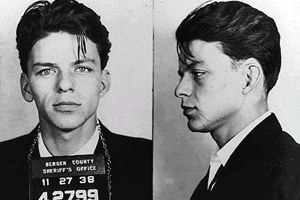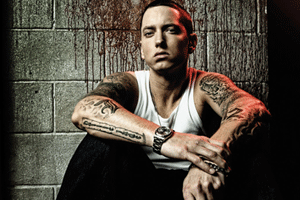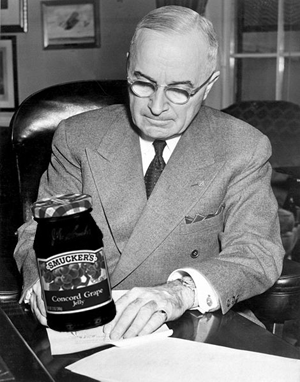
<a href="http://www.flickr.com/photos/toddwshaffer/5002874860/">Todd Shaffer</a>/Flickr
In Hollywood, it takes a gangster to play a gangster. Zaire Paige, the 21-year-old who recently scored a role alongside Richard Gere and Don Cheadle in the new-release Brooklyn’s Finest, hung out with Crips members during his adolescent days in Brownsville—New York City’s “most murderous” neighborhood. Paige auditioned for the role in 2008 at the urging of a friend who was hired to consult on the film’s “street authenticity,” as the Village Voice reports. Director Antoine Fuqua was sold immediately. “He is a kid who obviously comes from a violent world…He just fit the bill,” Fuqua later said of Paige. “He had no fear in his eyes.”
On Monday, Paige was sentenced to 107 years in prison (without parole). He was found guilty of a murder and multiple counts of assault that took place in 2008, when Paige and an associate shot and killed a 20-year-old they suspected of murdering their friend—a “revenge killing,” sort of like when, in season five of The Wire [spoiler alert], Omar limps around the Western busting caps in Marlo Stanfield’s lieutenants. Turns out, Paige isn’t the only one who jumped from the street to the silver screen. Hollywood’s seen a fair share of unruly actors who have crisscrossed between stardom and the paddy wagon. But in some cases, street cred is what made their acting careers. Tragically, Paige never got to see himself on the big screen, unlike some of his Hollywood predecessors:
 T/FlickrFrank Sinatra: Before he became one of the most celebrated jazz icons of all time, Sinatra lived in Depression- and war-era Hoboken, dropped out of high school, and left home at age 17. In 1938 he was arrested for seduction and adultery, which were illegal at the time. He also had those suspicious ties to the Mafia dating back to his early career, prompting the FBI to launch an investigation on him that started in the 1940s and lasted almost five decades. (Read all 2,403 pages of the bureau’s files on him here.) After fighting through vocal-cord damages that led to suicidal attempts, Sinatra made a comeback as a musician and actor. Among his 61 onscreen performances, he played numerous military roles (including one that won him an Oscar), as well as turn playing a card-dealing heroin addict, which got him nominated for Best Actor.
T/FlickrFrank Sinatra: Before he became one of the most celebrated jazz icons of all time, Sinatra lived in Depression- and war-era Hoboken, dropped out of high school, and left home at age 17. In 1938 he was arrested for seduction and adultery, which were illegal at the time. He also had those suspicious ties to the Mafia dating back to his early career, prompting the FBI to launch an investigation on him that started in the 1940s and lasted almost five decades. (Read all 2,403 pages of the bureau’s files on him here.) After fighting through vocal-cord damages that led to suicidal attempts, Sinatra made a comeback as a musician and actor. Among his 61 onscreen performances, he played numerous military roles (including one that won him an Oscar), as well as turn playing a card-dealing heroin addict, which got him nominated for Best Actor.
 Courtney Bolton/Flickr Eminem: The charged and impassioned rhymes of Eminem, who has 11 Grammys and is arguably “the best rapper alive,” is the kind that can only derive from personal experience. His father left home before the age of two, and while growing up in poverty he struggled with drugs and depression, which all influenced his compelling lyrics and his screen work in the semi-autobiographical flick 8 Mile. In 2000, Eminem was arrested twice in two days: the first time for pulling out a gun during a quarrel with a rival rap-group member; the second for assaulting a man whom Eminem says he saw kissing his then ex-wife. The next year, 8 Mile came out, sweeping nine awards (including an Oscar) and 18 nominations.
Courtney Bolton/Flickr Eminem: The charged and impassioned rhymes of Eminem, who has 11 Grammys and is arguably “the best rapper alive,” is the kind that can only derive from personal experience. His father left home before the age of two, and while growing up in poverty he struggled with drugs and depression, which all influenced his compelling lyrics and his screen work in the semi-autobiographical flick 8 Mile. In 2000, Eminem was arrested twice in two days: the first time for pulling out a gun during a quarrel with a rival rap-group member; the second for assaulting a man whom Eminem says he saw kissing his then ex-wife. The next year, 8 Mile came out, sweeping nine awards (including an Oscar) and 18 nominations.
Felicia “Snoop” Pearson: Pearson, who plays the “cold-blooded assassin” Snoop in The Wire, was hardened from the womb. Born to two drug addicts, she grew up in a foster home in East Baltimore. At age 14, she was charged with second-degree murder and sentenced to two eight-year terms in Jessup. Years later, at 24, Pearson scored a role on the HBO series after a chance run-in with Michael K. Williams (who plays Omar Little) at a Baltimore bar. “You look in her eyes and you see things,” Williams later said of his first impression of Pearson. “I felt compelled to give her an option, just in case she wanted to try something else.” She nailed the audition, naturally. Stephen King called her character “perhaps the most chilling female villain to ever appear in a television series.” Despite her fame and success, Pearson chooses to stay in Baltimore. “This is where I’m from,” she tells Anthony Bourdain, below. “You can’t never forget home.”










